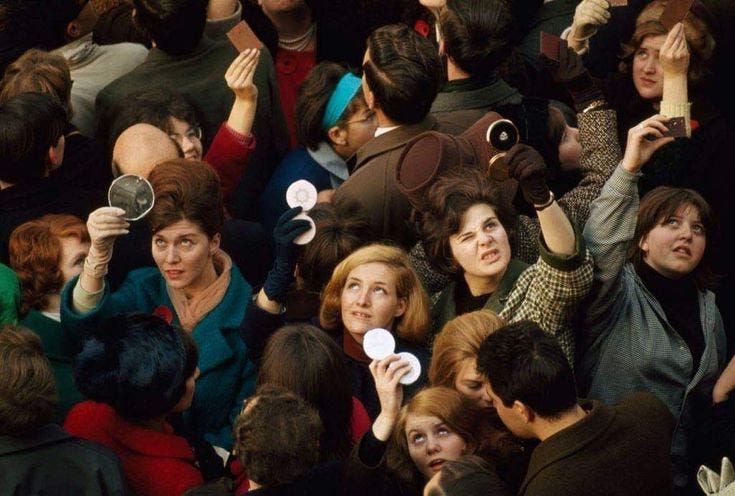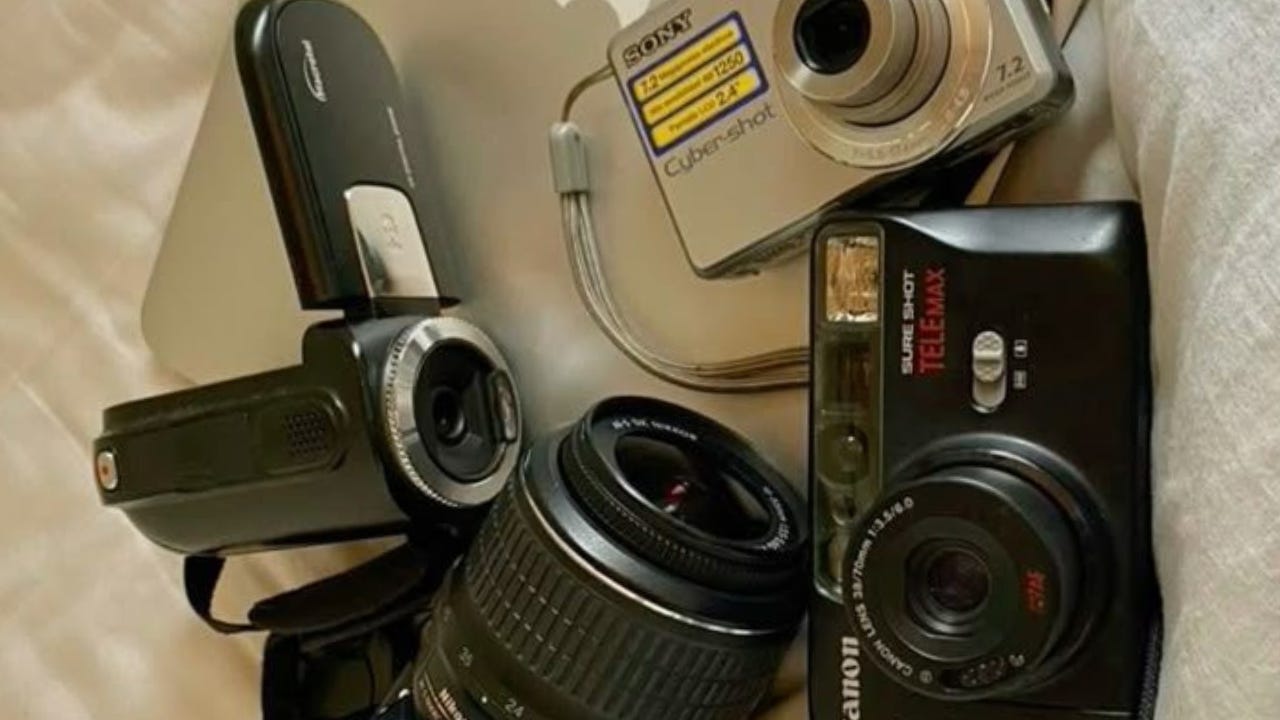Marketing in the Age of Manufactured Truth
Everything looks real, but isn’t. That’s the ethical gray zone of content.
I've been circling an existential crisis around modern marketing. It started when our team at Plot began analyzing the rise of beef tallow as a skincare trend using our video social listening tool. We reviewed over 1,900 pieces of user-generated content that appeared grassroots—front-camera selfies, cheap lav mic’d audio, and casual product mentions. What we found, though, suggested something more deliberate. One brand sat at the center of the conversation, and a cluster of creators appeared to be driving the majority of the content. It probably wasn’t a coincidence. Patterns pointed to coordinated marketing efforts—maybe not full briefs, but certainly a strategy at play. [Here’s the full report for you to download if you wanna see it for yourself.]
It wasn’t deception in the traditional sense, like running a slick ad without disclosure or deliberately misleading people about what a product does. It was something softer. Strategy designed to feel accidental. And that realization has stuck with me.
We’ve industrialized UGC. What once felt like spontaneous customer love is now an entire production pipeline engineered to mimic authenticity. When you think about it, it’s similar to reality TV logic. The emotions might be real, but the stage is carefully set.
Act I: The Performance

I’m not here to moralize any of this, because I can’t, not without being a hypocrite. I'm a Head of Marketing. I know how the machine works, and I'm part of it. This isn’t a rant against evolution. Marketing adapts—always has. But what’s unsettling is the pretending. It’s become an internalized choreography for marketers, creators, and even consumers playing along with the idea that something is organic, even when every detail has been massaged into place. We simulate spontaneity. And wrap coordination in front-facing, phone-recorded content and call it earned.
And maybe that’s fine. Maybe the audience doesn’t care. But for me, the dissonance hits every time I see a “just stumbled upon this” moment that I know was briefed and storyboarded.
Here’s the uncomfortable tension: something can look honest without being honest. And something can feel real while still being calculated. But does that build anything that lasts? Or just perform well for a quarter?
Act II: The Contradiction
I’m a full-stack millennial, born in 1990. Old enough to remember clunky commercials and magazine spreads. Young enough to have grown up through the rise of blogs, YouTube, and personal brands. I watched the shift from genuine product recommendations to early #spon deals, then watched the backlash, and then saw those same deals come back—just better disguised.
So when I see marketing engineered to look unpolished, my gut clocks the gap. I remember being told to “be yourself” and “build a brand” in the same sentence. That contradiction shaped my instincts because it basically taught me to perform, and perform well.
And that’s what makes this so hard to talk about. I’m not just standing on the sideline observing the manipulation. I’m one of the folks producing it. And I’m good.
Marketing today thrives on appearances. It’s not about truth. It’s about plausibility. We lean on the optics of intimacy because we know they work. We call it connection, but really, we’re perfecting illusion. And the line between authenticity and artifice gets blurrier with every scroll.
Maybe consumers are in on it too. Maybe they prefer the performance, as long as it’s entertaining. If that’s true, then the question isn’t whether we’re gaslighting anyone. It’s whether we’re okay with a job that’s largely become about making people believe in something we know isn’t real.
Act III: The Reckoning
Here’s where the real friction lives, brands used to be built on consistency and conviction. The ones that lasted—Patagonia, Trader Joe’s, even early Glossier—weren’t just fluent in aesthetics. They stood for something. They didn’t have to fake authenticity because they were grounded in actual values.
Now? Now, novelty wins. Discovery is gamified. Trust flickers in and out of relevance. We say we’re building relationships, but we’re mostly chasing reactions. And that’s a dangerous game if your goal is longevity.
Think about the brands that collapsed, like Sears, Kmart, Forever 21. Yes, brands disappear because of financial failure. But what’s often overlooked is how those failures stem from a slow loss of relevance. The cultural fade happens long before the storefront closes. These aren’t just businesses that didn’t make it. They’re brands that quietly stopped mattering. That’s the risk. If marketing becomes a series of well-rehearsed stunts, we may win short-term gains but lose the thread of what makes a brand endure.
And yet, here we are:
We know how to manipulate perception.
We know how to fabricate relevance.
We know how to simulate emotional truth.
The deeper question is this, because I refuse to suffer through these thoughts alone, do we still know how to build something meaningful?
If perceived value can be conjured so easily, was there ever real value to begin with?
I think the answer lies in intention. Execution can be orchestrated but it matters what it’s in service of. If the product delivers, if the brand has some sort of backbone, if the marketing is rooted in something more than attention...then maybe, just maybe, it can still resonate and matter.
But that only works if we stay aware of what we’re shaping and whether the work is starting to shape us back.
Because if we lose that awareness, it’s not just the work that becomes hollow. It’s us.






I’ve definitely seen a trend in people losing trust in UGC campaigns because of how often they’re manipulated and faked. Deception is becoming so normalised in marketing, and it’s hard to know what’s real and what’s fake, which also means people are becoming more susceptible to phishing attempts and brand impersonators.
Would love to chat about a collab/partnership, let me know how to get in touch or message me at eliord@spikerz.com.
I think there's too much pressure on marketing in general. You held the tension well, I'm too old to truly be a gen z and too young to be a *real* millennial, I'm just on the other end of it. It's always been a performance. The question of trends is more what's "on brand" for you to participate in?